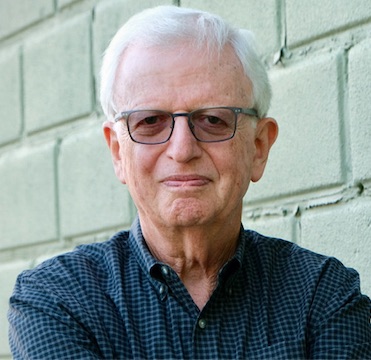In the summer of 1968, near the end of a post-college tour of Western Europe, I traveled to Prague, as the guest of a Czech student I had met earlier in my trip. The city, along with the rest of what was then known as Czecholslovakia,, was a satellite of the old Soviet Union, which was dominated by Russia.
While the city architecturally looked a lot like it does today, with magnificent grandiose old buildings and churches, it was a gray place, devoid of the color or bustle of commerce and excitement befitting not only its magnificent history, but of other European cities immediately to the west, in (then) West Germany, France, and the U.K.
Auto traffic was sparse because few could afford a car. Pedestrian traffic in the city center was sparse as well, likely because there was little to buy in badly stocked stores that depended on Russia for food, clothing, and appliances, and didn't trade with the West.
There were very few tourists, because there was little to do beyond admire the grandiose architecture. I recall going to a bar with my host, who joked cynically that there was only one kind of cola drink to order anywhere, an overly sweet concoction he called "Socialist Coca Cola." There was only one beer available as well, though at least this one, a locally produced version, was pretty good.
When the Soviet Union collapsed in 1989, the Eastern European countries like Czechoslovakia that had been Soviet vassal states turned westward, and rushed to join the European Union and the North Atlantic Treaty Organization (NATO). They were destitute economically, having been squeezed dry by their Russian overseers, and they had had enough of endless political repression that included severe limits on freedom of speech and the press, and an absence of free elections. Some, like Czechoslovakia, first went through internal turmoil that led to the creation of new states (Czech Republic and Slovakia). But whatever the particulars of their reorganizations, not a single one wanted to remain associated with Russia, the main remnant of the Soviet Union.
I recount this history because of the new romanticism surrounding Russia among some on the right, led by our president. The notion of allying ourselves more closely with Russia, and less closely with our long-time allies and trading partners in North America, Europe, and Asia has been building since Trump's campaign for president, when he several times expressed his admiration of Russia's president, Vladimir Putin. Trump put something of an exclamation point on the buildup two weeks ago when he stood next to Putin in Helsinki and practically kissed his rear end while telling him and America's allies that he believed Putin at least as much as his own intelligence services concerning Russian meddling in America's 2016 election. He even went further, seeming to endorse a Putin suggestion that American and Russian security services team up to investigate Russian interference in the U.S. electoral process.
Why would Trump bash old allies like Germany, France, Canada, and the UK, along with newer trading partners like China and Japan, and reserve his admiration mainly for Russia, which has regularly opposed American interests around the world, and has little to offer in trade because its economy is a wreck? Its main exports are oil and gas, and its economy is about half the size of California's. Because it is considered one of the most corrupt countries in the world (US News ranks it #8 among its top 10 most corrupt countries), many established international corporations don't want to do business there.
It is anti-democratic in nearly every sense of the word. Putin won't allow any serious opponents to run against him in what amount to mock elections. The media is closely monitored by the government, and journalists have been harassed and murdered. Opposition groups, even including rock stars like p*ssy Riot, have been tried and jailed for expressing anti-Putin sentiments.
In other words, politically and economically, things haven't changed much since the dark Soviet days of 1968. Sure, it isn't "communist" any longer. But even if it is now more appropriately labeled "fascist," it somehow remains a beacon of opportunity to our president. How could that be?
It's certainly easy to see why Putin would love closer economic ties with the U.S. We have seemingly endless wealth he would love to transfer to Russia, much as the old Soviet Union sucked Czechoslovakia and its other eastern European satellites dry.
What does the U.S. stand to gain from a closer relationship with Russia? Access to its oil and gas reserves? We have become ever more energy independent, so have no need to access energy so far from our shores. Cheaper vodka supplies? Or perhaps we could learn something about more effectively hacking the security secrets of our old allies. In other words, it's a lot easier to understand why Putin wants to forge closer ties with us than it is to understand why Trump wants to suck up to Putin. Unless Trump has a debt to repay to his Russian chum.





